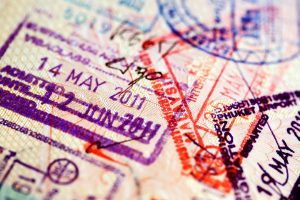
The global response to COVID-19 has stranded some people in countries that they had expected to be able to leave. This is obviously inconvenient for everyone affected, but in certain situations could have an impact on tax residency.
Stuck in the UK
Tax residency in the UK is determined by the statutory residence test (SRT). This legislation allows for 60 days to be disregarded in “exceptional circumstances” each tax year (6 April to following 5 April). HMRC have confirmed that COVID-19 is exceptional in the following circumstances:
• You are quarantined or advised by a health professional or public health guidance to self-isolate in the UK as a result of the virus;
• You find yourself advised by official Government advice not to travel from the UK as a result of the virus;
• You are unable to leave the UK as a result of the closure of international borders; or
• You are asked by your employer to return to the UK temporarily as a result of the virus.
It is important to note, however, that the 60 day limit to disregarded days still applies. Unless you already had a high number of disregarded days in the 2019/20 tax year (to 5 April 2020) this is unlikely to be a problem in that year. However, if the crisis drags on for several more weeks then you could easily breach the 60 day limit in 2020/21. That would mean that further travel to the UK up to 5 April 2021 may have to be reduced if you are looking to be non-UK resident. It is possible that the UK tax authorities could amend the SRT if lockdown continues, but this cannot be relied upon.
If you work whilst in the UK, it is important to note that even if those workdays are disregarded as part of your overall number of days in the UK, they will still count as workdays for the “sufficient ties” test. This in turn affects the total number of days you can spend in the UK without becoming UK tax resident. Even if you do remain non-UK resident, the money you earn on such workdays may still be taxable in the UK. If you are a director of a non-UK resident company, you must take extra care not to become UK resident as this could result in your company becoming UK tax resident too. Another risk is creating a permanent establishment in the UK as a result of work carried out here. The OECD has issued guidance suggesting that they consider the risk to be low, but specialist tax advice is still recommended as the rules vary in each jurisdiction.
It may be that even if you become UK resident as a result of COVID-19 per the SRT, you could still be deemed to be non-UK resident if you are tax resident in another country with a double taxation treaty with the UK.
Stuck outside of the UK
If you are forced to remain outside of the UK, this may affect your tax residency in the country you are in. Certain countries, for example Australia and Ireland, have made provisions similar to the UK to prevent individuals becoming resident due to COVID-19. It is recommended that you get tax advice in the relevant country.
If you are stranded abroad and were UK tax resident before that and will only temporarily lose your UK tax residency, the OECD guidance recommends that this is disregarded by the countries involved. It is however up to the individual countries to implement this.
If you are intending on becoming UK tax resident but cannot meet the required day count due to COVID-19, then you will not be UK resident. This is true even if you would otherwise be resident in the UK under a double tax treaty, as this is predicated on being UK resident under UK domestic law.
Coming to the UK to tackle COVID-19
The UK Government to not wish to impede those coming to the UK to combat COVID-19. Becoming UK resident may bring your worldwide income into the UK tax net. The Chancellor has therefore announced that the SRT will be amended “to ensure that any period(s) between 1 March and 1 June 2020 spent in the UK by individuals working on COVID-19 related activities will not count towards the residence tests.” These activities will apparently be tightly defined, and the measure is most likely aimed at those in the medical and scientific community.
This is a complex and fast changing area, check our Covid hub for updates or get in touch to talk through your specific circumstances.
The information in this article was correct at the date it was first published.
However it is of a generic nature and cannot constitute advice. Specific advice should be sought before any action taken.
If you would like to discuss how this applies to you, we would be delighted to talk to you. Please make contact with the author on the details shown below.








